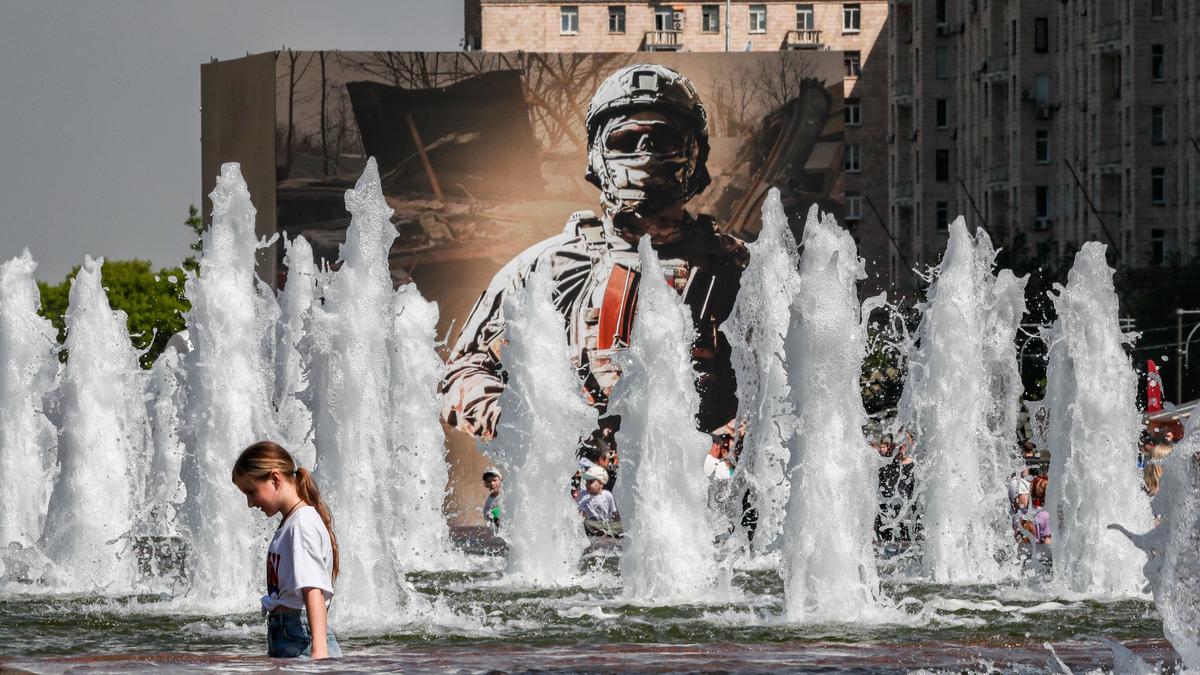Russians are increasingly choosing to ignore the war in Ukraine and its consequences, becoming more closed off and apathetic amid the Kremlin’s crackdown on dissent, researchers with The Public Social Laboratory have found.
The Public Social Laboratory, or PS Lab, an autonomous research group focusing on politics and society in Russia and post-Soviet regions, has released its third analytical report examining what Russians think of the war.
The unique study was carried out in the autumn of 2023 in three parts of Russia: the Sverdlovsk region in the Urals, the Krasnodar region in southern Russia, and the republic of Buryatia in Siberia.
‘No amount of money is worth giving your life up for’
The PS Lab researcher who went to an unnamed town in the Sverdlovsk region with a population of just over 12,000 people reported only occasionally coming across pro-war symbols, nor did she see posters promoting enlistment. Local businesswoman Tonya said any obvious signs of the war had almost completely disappeared over the past year.
Researchers concluded there were almost no traces of war in the town and that it was rarely talked about in public or in local groups online.
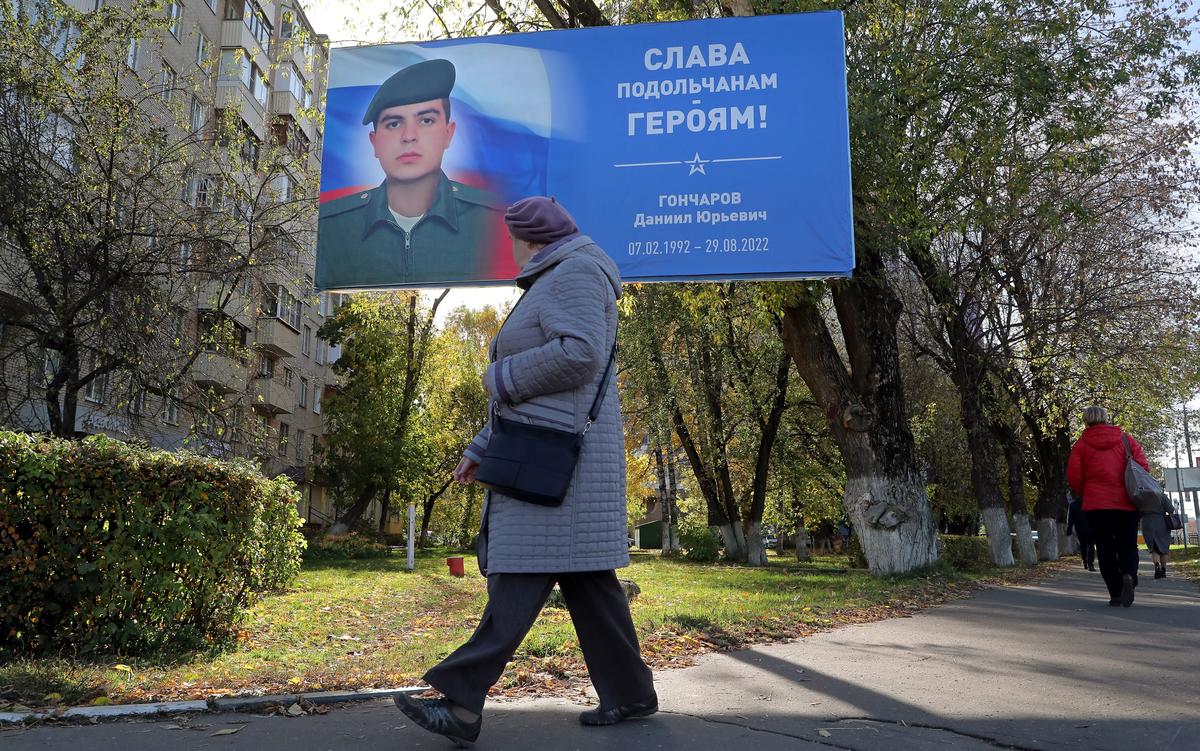
An elderly woman in the Moscow region town of Podolsk passes an awning featuring Russian soldier Daniil Goncharov, who died fighting in Ukraine, and the slogan “Glory to Podolsk’s Heroes”, 11 October 2022. Photo: EPA-EFE / MAXIM SHIPENKOV
Nevertheless, local residents did express their sadness at the deaths of local conscripts sent to Ukraine. One vivid example of that was a local teacher who had been sent home in a coffin just seven days after being conscripted into the military, having been killed in an accident before he even made it to the war zone.
People, however, did actively discuss the significant sums being paid to people by the military, including compensation paid to relatives of the dead, though they often voiced their disapproval from a moral standpoint of money being earned that way. “No amount of money is worth giving your life up for,” one interviewee said.
Families being split up by the war was of particular concern to women, as for them, soldiers being sent to Ukraine potentially means them being robbed of a husband or a son. Some were also outraged that people had to spend their own money on kitting out conscripts: “She took out a loan of 100,000 (€1,000) to fully kit out her own child!”
‘People are becoming more closed off’
Despite its location in Russia’s Far East, Buryatia has long been among the regions most affected by the war in Ukraine. In the first month of the war, Buryat deaths made up some 3.5% of Russia’s total losses, despite its population of under 1 million people. Indeed, the presence of Buryat servicemen in Ukraine was a talking point both abroad and for Russia’s independent media even before partial mobilisation was announced in September 2022, as unemployment and poverty in the republic has made military service a stable and well-paid career option.
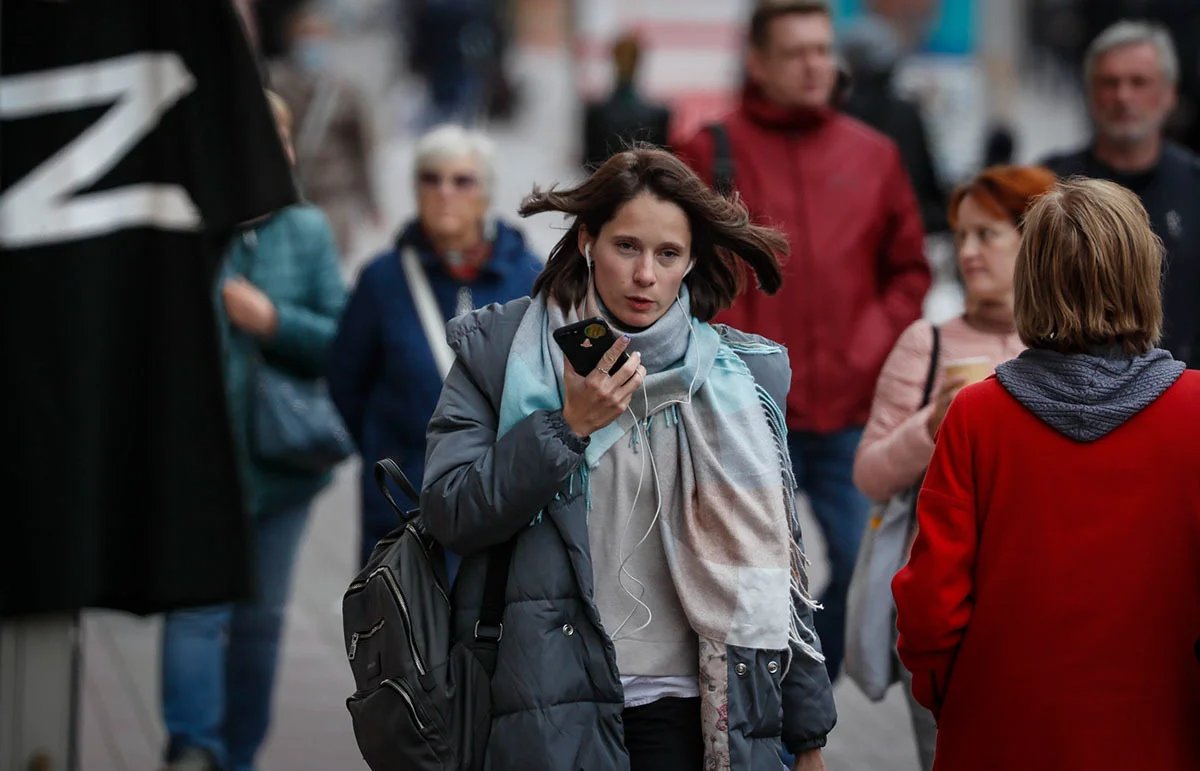
People pass a T-shirt emblazoned with the pro-war Z symbol on sale at a store in Moscow, 13 September 2022. Photo: Yuri Kochetkov / EPA-EFE
Both in the capital, Ulan-Ude, and in the countryside, military symbols were a rare sight, according to the researcher, though they did notice the occasional person wearing a Z-badge, as well as stickers on cars, Russian flags on residential buildings and St. George’s ribbons, a Russian military symbol often used in pro-war propaganda, displayed on bags.
Despite actively seeking out official events dedicated to the war, the researcher reported that they had been hard to find. Most people told the researcher that either they personally or their relatives had attempted to support the Russian army by donating money or equipment — sometimes even making the equipment themselves — as the majority of locals had relatives or friends fighting in the war. However, the report found that most Buryats who supported the army did so not because they necessarily supported the war, but because they wanted to assist “their own people”.
“Someone from my class is fighting in the special military operation, so I make donations. … A scary number of guys have gone. … The way I see it, I can spare the 500 rubles (€5) I donate every month. … At least I’m doing something, because I can’t go and fight or do anything myself,” one villager said.
Even those who oppose the war often help out their relatives at the front, the report is keen to point out, as for them the Russian army and the Buryats conscripted to serve in it are not the same thing.
According to locals, there are two main reasons their friends and relatives have gone to war: either they had no choice in the matter, or it was their only way to earn good money.
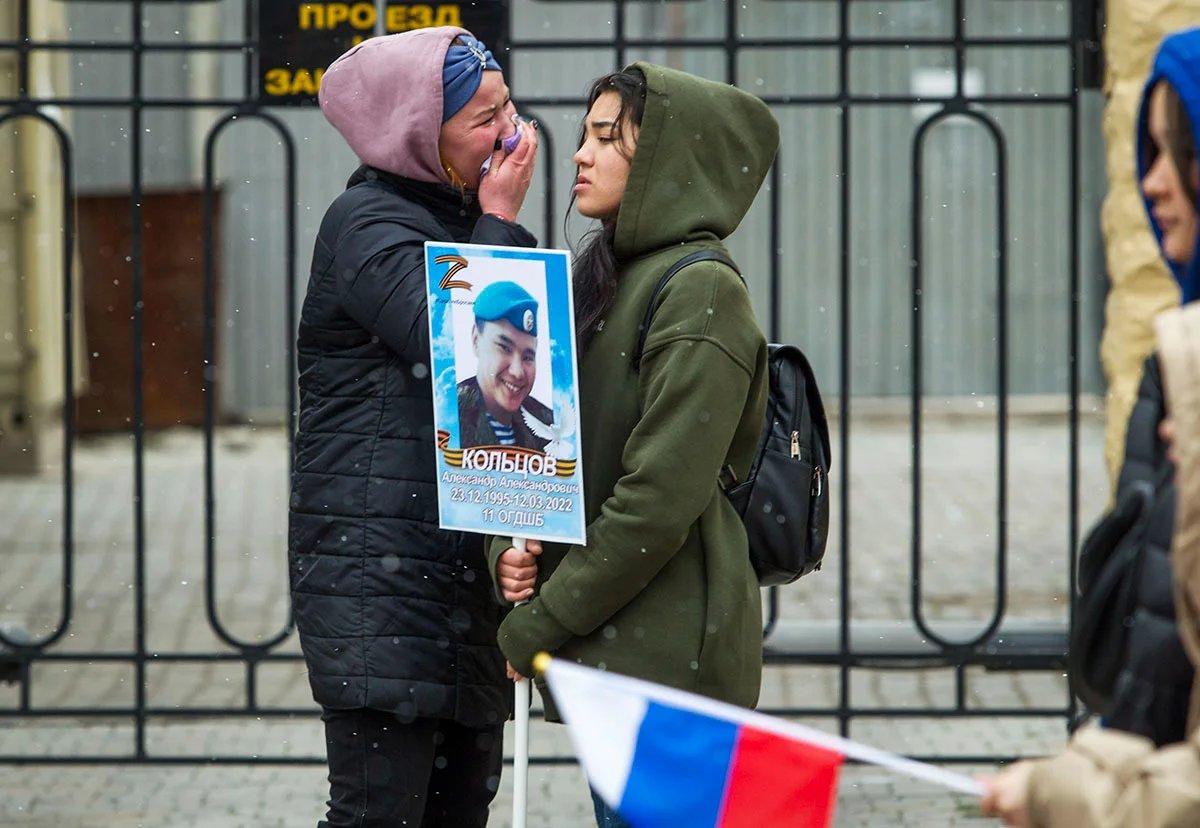
Women cry while holding a portrait of Alexander Koltsov, who died in Ukraine, during the Immortal Regiment march in Ulan-Ude, Buryatia, 9 May 2022. Photo: AP Photo / Scanpix / LETA
Opponents of the war who spoke to the researcher frequently attempted to avoid speaking frankly on the subject altogether. “I think it’s terrible… People are becoming more closed off,” said one interviewee. Everyone the researcher spoke to, regardless of their stance on the war, said they avoided criticising the state in everyday conversation for fear of causing themselves or their loved ones hardship and destroying personal relationships.
‘We’re not being bombed and Wagner didn’t come for us’
The Krasnodar region in southern Russia is close to the combat zone — until July 2023 there was even a military base used by the Wagner Group near the village of Molkino, near the region’s eponymous administrative centre.
While the PS Lab researcher frequently observed the pro-war Z symbol adorning cultural buildings, public transport and bus stops, fences and billboards in the regional capital Krasnodar, few people appeared to be sporting pro-war symbols themselves, and the war did not appear to be a subject of discussion on public transport, in cafés or on the street.
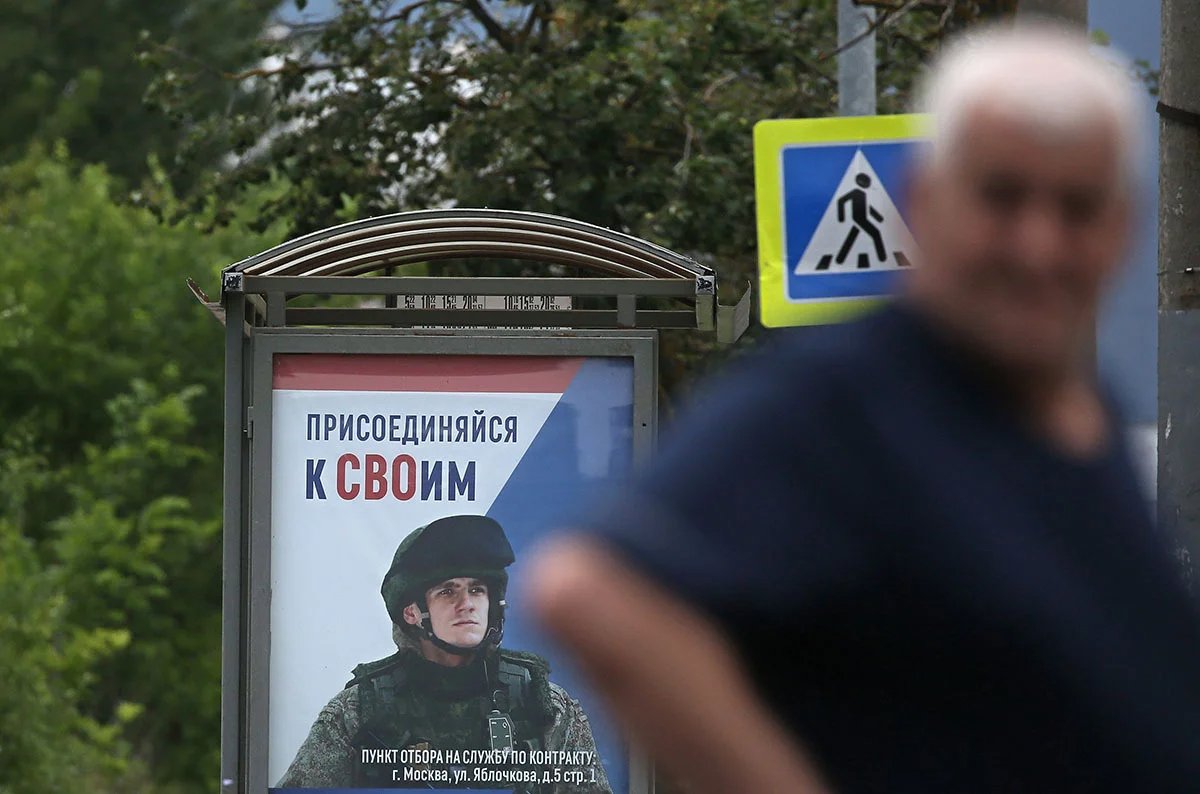
A man walks past a draft ad showing a Russian soldier with the caption “Join your people”. Photo: Maxim Shipenkov / EPA-EFE
The researcher regularly encountered those who said they did volunteer work for the Russian military, most of whom attributed their decision to do so to somebody close to them fighting in the war, while others said they thought that volunteering helped set a good example for children.
The war was a constant subject of discussion whenever the researcher spoke with locals. “Nobody wants war. But there’s no escaping it either,” said one Krasnodar resident, while another person told the researcher that they avoided going to public events these days, “as they will feature the war one way or another,” adding: “We’re not being bombed and Wagner didn’t come for us. There are no obvious signs of change.”
Though many people admitted to knowing those who had gone to fight, career soldiers and those who enlisted of their own volition didn’t arouse particular sympathy as they were deemed to have made their own choice. As well as fear for themselves and their relatives, locals exhibited varying degrees of nervous tension, according to the researcher, which they clearly didn’t intend “to speak openly about” in their exchanges.
“People are afraid, they are emotionally and financially unstable,” one Krasnodar resident said. Nonetheless, the researcher concluded that the war was a huge cause of anxiety for most people in the region, who feel safe and far removed from hostilities overall, despite the region’s proximity to Ukraine.
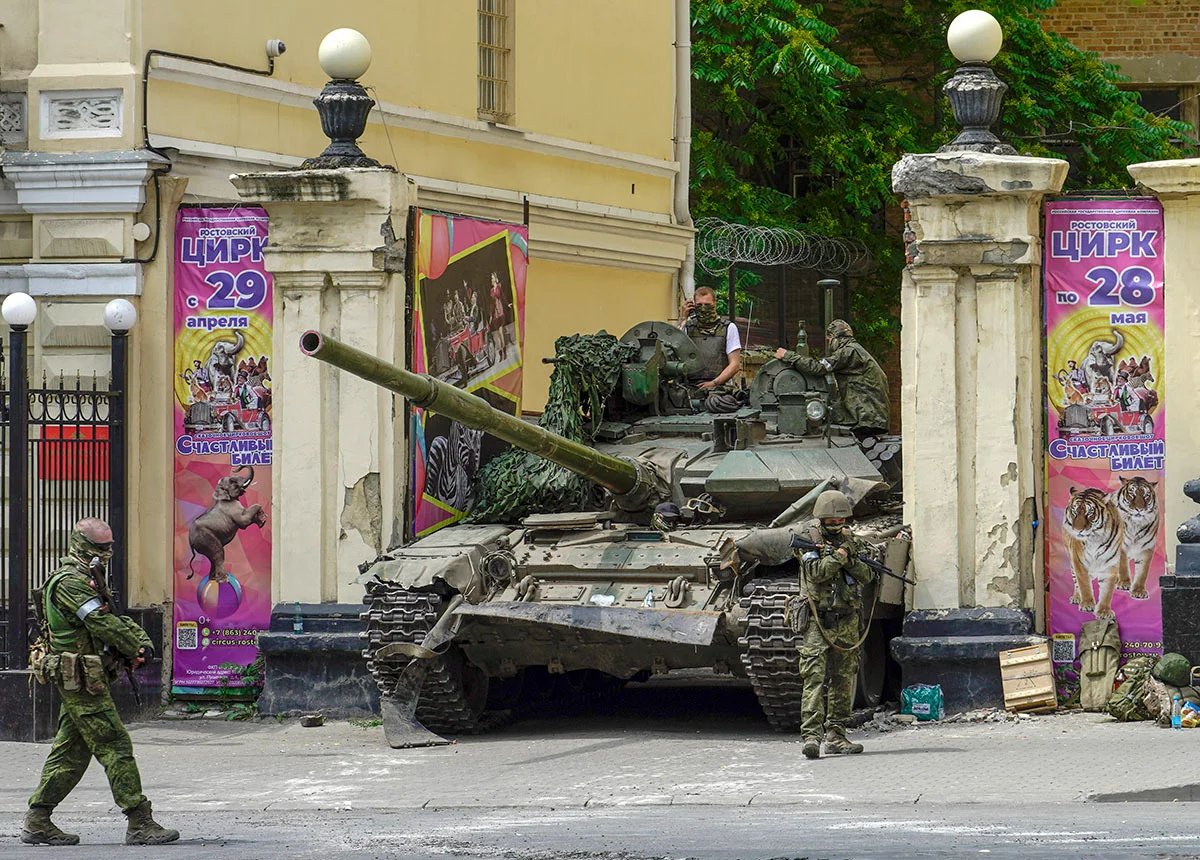
Armed Wagner Group mercenaries in the centre of Rostov-on-Don, southern Russia, on 24 June 2023. Photo: EPA-EFE
Uncertainty and pessimism reign
From a political point of view, Russian society is inactive and out of ideas, PS Lab concluded in its report. The war has become a familiar and therefore unremarkable part of reality, which is largely ignored by the Russian public. Rather than engaging in debate, people typically withdraw into themselves, afraid to share their fears. Those volunteering to support the war effort usually only do so under pressure from the authorities or to help loved ones, rather than an earnest desire to assure Russian victory.
Opponents and non-opponents of the war find themselves less and less in conflict, though this hasn’t necessarily led to greater social cohesion, whereas the gulf in opinions between Russian émigrés and those still in the country is growing ever wider, PS Lab found.
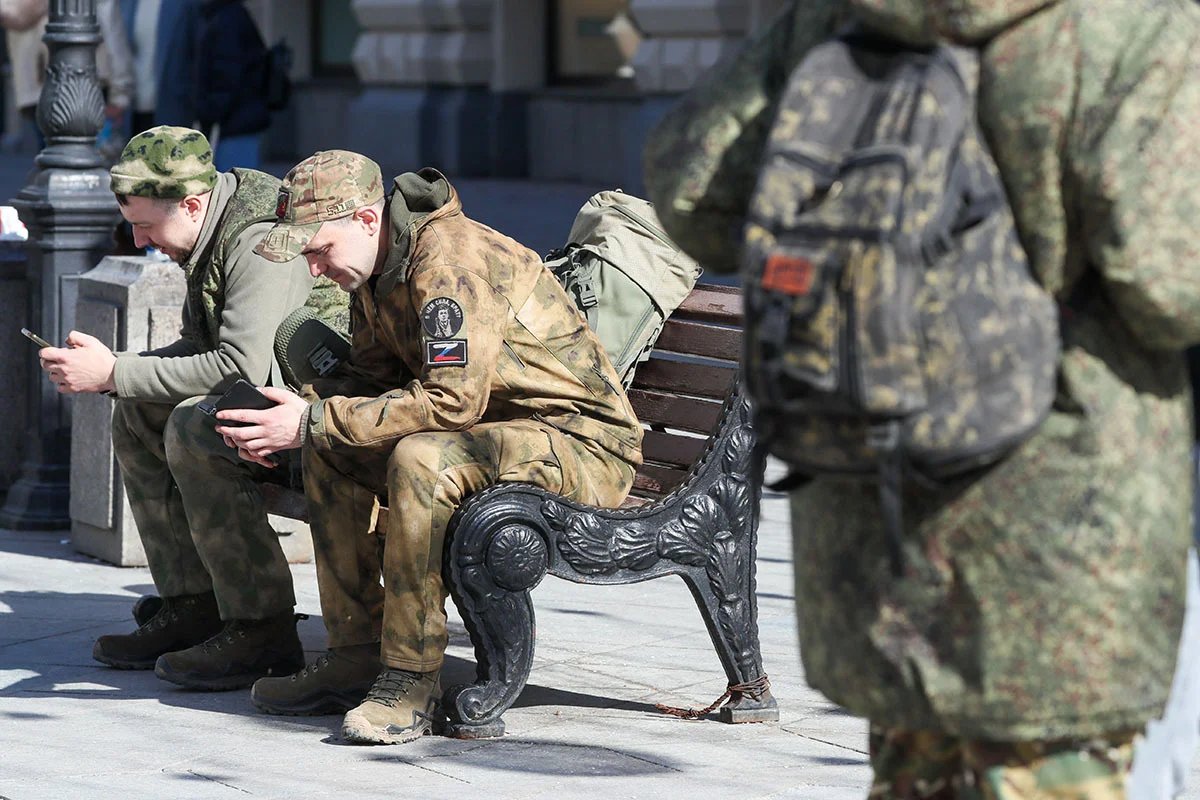
Men in military fatigues on a Moscow street. Photo: Alamy / Vida Press
While most Russians try to live as if there is no war, and either deal with or ignore the negative consequences of the ongoing conflict, researchers observed that, on the whole, Russians who justified the war were nonetheless becoming more critical of the state.
Many people do appear to have developed a stronger sense of national identity, PS Lab concluded, even if it doesn’t entirely align with the state ideology of imperialist nationalism that dubs Ukraine a “fake” state and Ukrainians “inferior people”.
What truly unites Russians is a feeling of uncertainty, which makes it all the more difficult to plan for the future and has prompted many Russians to feel something akin to despair. The desire of the average Russian to live a normal life free from political interference is only growing stronger.
Join us in rebuilding Novaya Gazeta Europe
The Russian government has banned independent media. We were forced to leave our country in order to keep doing our job, telling our readers about what is going on Russia, Ukraine and Europe.
We will continue fighting against warfare and dictatorship. We believe that freedom of speech is the most efficient antidote against tyranny. Support us financially to help us fight for peace and freedom.
By clicking the Support button, you agree to the processing of your personal data.
To cancel a regular donation, please write to [email protected]
